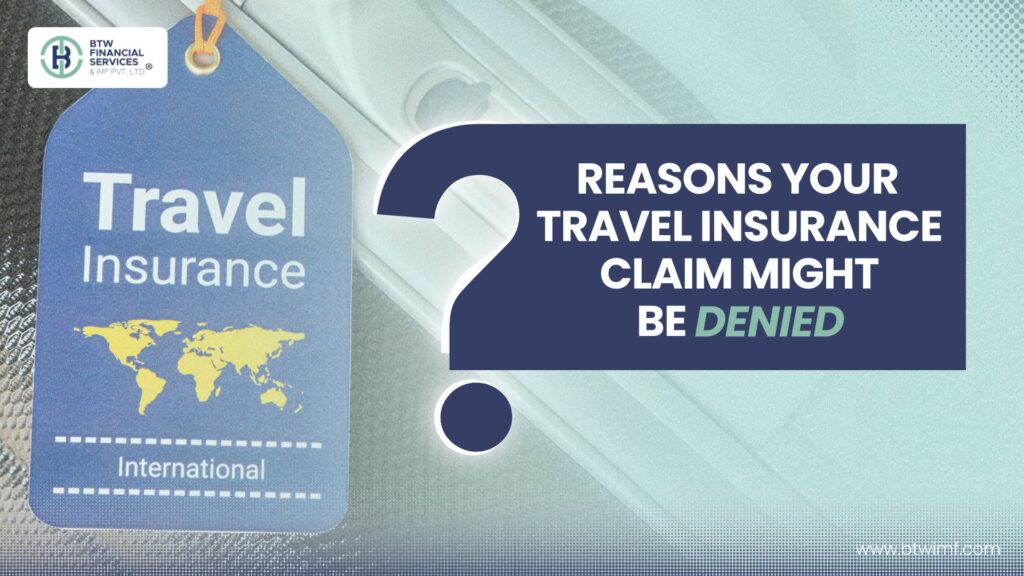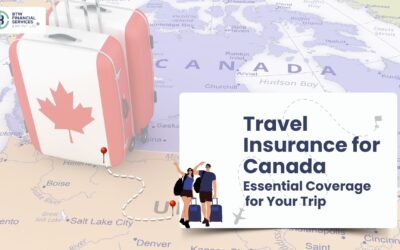Reasons Your Travel Insurance Claim Might Be Denied
Summary
- Policy Exclusions:
- Pre-existing medical conditions
- Adventure activities or sports (if not explicitly covered)
- Travel to high-risk countries or areas
- Insufficient Documentation:
- Lack of proof of travel
- Inadequate medical documentation
- No police report (for theft or loss)
- Non-Disclosure or Misrepresentation:
- Withholding pre-existing medical conditions
- Providing incorrect or incomplete information
- Policy Conditions Not Met:
- Failing to purchase policy within required timeframe
- Non-payment of premiums
- Not adhering to policy terms and conditions
- Other Reasons:
- Claims not falling within policy coverage
- Investigation findings (fraud, negligence, etc.)
- Policy cancellation or lapse
Key Takeaway: Understand policy terms, disclose all relevant information, and maintain accurate records to minimize the risk of claim denial.
Table of Contents
- Introduction to Travel Insurance Claims
- Policy Exclusions: Understanding What’s Not Covered
- Insufficient Documentation: The Importance of Proof
- Non-Disclosure or Misrepresentation: The Consequences of Withholding Information
- Policy Conditions Not Met: Failing to Comply with Requirements
- Claims Not Falling Within Policy Coverage: Understanding the Boundaries
- Investigation Findings: The Role of Evidence in Claim Denials
- Other Reasons for Claim Denial: Additional Factors to Consider
- Best Practices to Avoid Claim Denial
- Conclusion
1. Introduction to Travel Insurance Claims
Travel insurance is designed to provide financial protection against unforeseen events that may occur during your trip. However, there are instances where your travel insurance claim might be denied. Understanding the reasons behind claim denials can help you navigate the complexities of travel insurance and ensure a smoother claims process.
2. Policy Exclusions: Understanding What’s Not Covered
- Pre-Existing Medical Conditions:
- Definition: A medical condition that existed before the policy’s effective date.
- Impact on Claims: Claims related to pre-existing conditions may be denied if not disclosed or not covered by the policy.
- Adventure Activities or Sports:
- Definition: High-risk activities like skydiving, bungee jumping, or extreme sports.
- Impact on Claims: Claims arising from these activities may be denied if not explicitly covered by the policy or if an additional premium was not paid.
- Travel to High-Risk Countries or Areas:
- Definition: Destinations with travel warnings or advisories due to safety concerns.
- Impact on Claims: Claims related to travel to these areas may be denied if not covered by the policy or if special permission was not obtained.
3. Insufficient Documentation: The Importance of Proof
- Proof of Travel:
- Importance: Verifies the trip’s occurrence and duration.
- Required Documents: Flight itinerary, hotel booking, or boarding passes.
- Medical Documentation:
- Importance: Supports medical-related claims.
- Required Documents: Doctor’s note, medical bills, or hospital records.
- Police Report:
- Importance: Essential for claims involving theft or loss.
- Required Document: A copy of the police report filed in a timely manner.
4. Non-Disclosure or Misrepresentation: The Consequences of Withholding Information
- Pre-Existing Medical Conditions:
- Consequences: Claim denial or policy cancellation if not disclosed.
- Consequences: Claim denial or policy cancellation if not disclosed.
- Incorrect or Incomplete Information:
- Consequences: Claim denial or policy cancellation if discrepancies are found.
- Consequences: Claim denial or policy cancellation if discrepancies are found.
- Concealing Relevant Facts:
- Consequences: Claim denial or policy cancellation if material facts are withheld.
5. Policy Conditions Not Met: Failing to Comply with Requirements
- Policy Purchase Timeframe:
- Requirement: Purchasing the policy within a specified timeframe before trip departure.
- Consequences: Claim denial if the policy is bought outside this window.
- Premium Payment:
- Requirement: Paying premiums on time and in full.
- Consequences: Claim denial or policy lapse if premiums are not paid as required.
- Policy Terms and Conditions:
- Requirement: Adhering to all policy terms and conditions.
- Consequences: Claim denial if the policyholder fails to comply.
6. Claims Not Falling Within Policy Coverage: Understanding the Boundaries
- Events Not Covered:
- Examples: Natural disasters (if not explicitly covered), pandemics, or wars.
- Consequences: Claim denial if the event is not covered by the policy.
- Amounts Exceeding Policy Limits:
- Consequences: Claim denial or partial payment if the claim amount surpasses policy limits.
- Consequences: Claim denial or partial payment if the claim amount surpasses policy limits.
- Consequential Losses:
- Examples: Loss of business opportunities, travel inconveniences.
- Consequences: Claim denial as these are typically not covered.
7. Investigation Findings: The Role of Evidence in Claim Denials
- Fraudulent Activity or Intentional Acts:
- Consequences: Claim denial and potential legal action.
- Consequences: Claim denial and potential legal action.
- Negligence or Reckless Behavior:
- Consequences: Claim denial if the policyholder’s actions contributed to the loss.
- Consequences: Claim denial if the policyholder’s actions contributed to the loss.
- Discrepancies in the Claimant’s Story:
- Consequences: Claim denial if inconsistencies are found during the investigation.
8. Other Reasons for Claim Denial: Additional Factors to Consider
- Policy Cancellation or Lapse:
- Consequences: Claim denial if the policy was cancelled or lapsed at the time of the incident.
- Consequences: Claim denial if the policy was cancelled or lapsed at the time of the incident.
- Failure to Obtain Necessary Visas or Travel Documents:
- Consequences: Claim denial if the policyholder failed to meet travel requirements.
- Consequences: Claim denial if the policyholder failed to meet travel requirements.
- Engaging in Activities That Void the Policy:
- Examples: Driving under the influence, engaging in illegal activities.
- Consequences: Claim denial if the policyholder participated in activities that nullify the policy.
9. Best Practices to Avoid Claim Denial
- Carefully Review Policy Terms and Conditions
- Disclose All Relevant Information
- Maintain Accurate and Detailed Records
- Understand Policy Exclusions and Limitations
- Seek Clarification from Your Insurer When Needed
10. Conclusion
Understanding the reasons behind travel insurance claim denials can help policyholders navigate the complexities of travel insurance. By being aware of policy exclusions, the importance of documentation, and the consequences of non-disclosure or misrepresentation, among other factors, travelers can take proactive steps to ensure a smoother claims process. Remember, careful planning and attention to detail are key to maximizing the benefits of your travel insurance policy.
Additionally, seeking professional advice from an insurance expert can help clarify policy terms, avoid common pitfalls, and ensure you are adequately covered for your specific travel needs.




